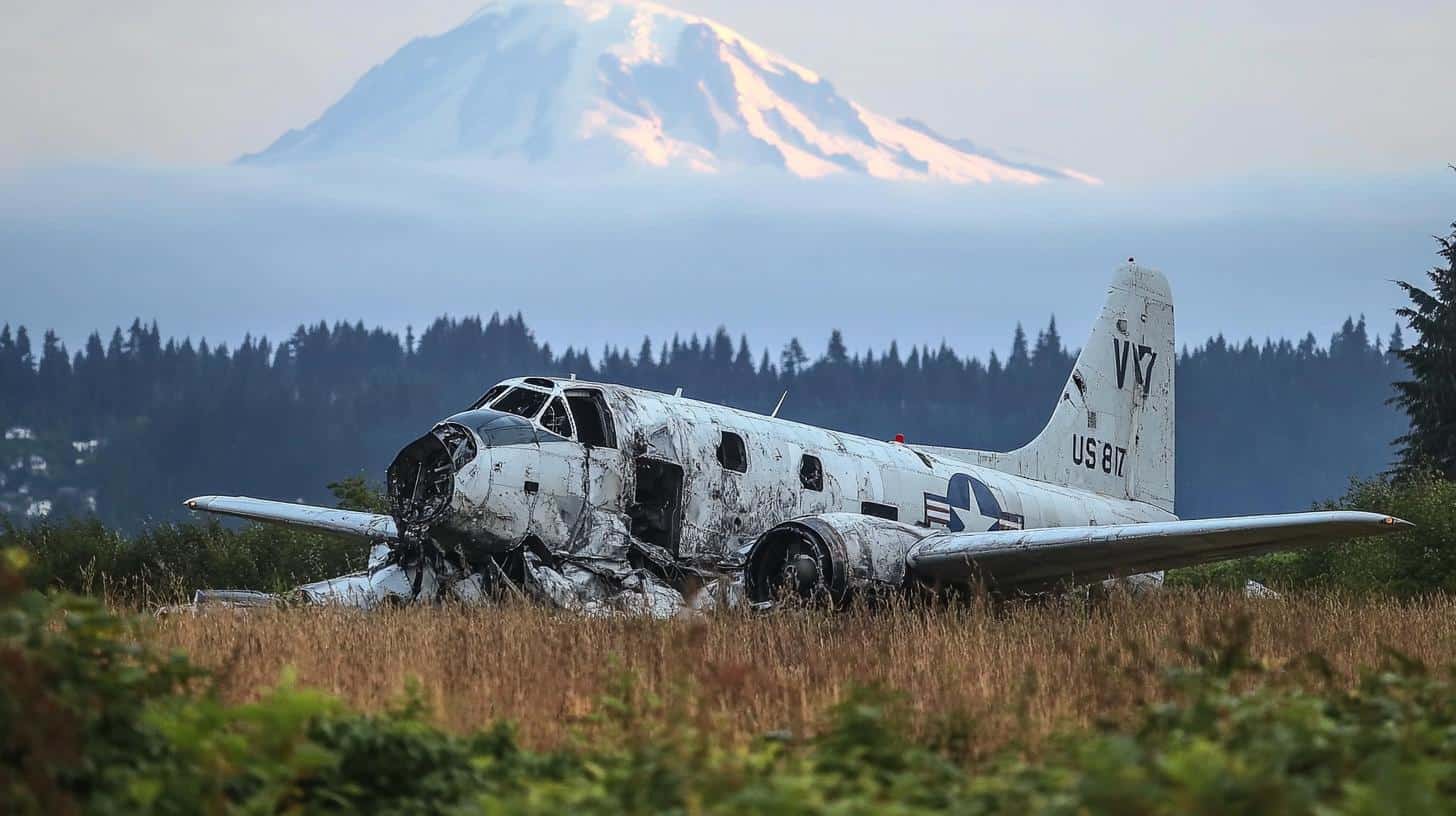Two naval aviators remain unaccounted for following the crash of a U.S. Navy EA-18G Growler east of Mount Rainier during a routine training mission. According to a statement from Whidbey Island Naval Air Station, the incident took place in Yakima County at 3:23 p.m. on Tuesday.
In response to the crash, a significant search operation was launched. A U.S. Navy MH-60S helicopter was dispatched from Whidbey Island to locate the missing crew and investigate the site. Despite their efforts, as of late Wednesday night, the identities of the airmen have not been confirmed.
The Yakima County Sheriff’s Office augmented the search mission. Two ground teams were deployed to assist, and spokesperson Casey Schilperoort indicated that they plan to enlist further regional assistance. Data from Flightradar24 revealed that a Navy helicopter combed an area extending over 40 miles.
The cause behind the aircraft’s unfortunate crash is currently under investigation. The aircraft belonged to Electronic Attack Squadron 130, known as the “Zappers,” which recently returned from an overseas deployment aboard the USS Dwight D. Eisenhower.
The EA-18G Growler is a specialized variant of the F/A-18 Super Hornet. Developed by Boeing, each aircraft costs approximately $67 million. Most of these planes are stationed at Whidbey Island.
In 2017, the Growler encountered another incident. During a separate training exercise, one experienced a canopy malfunction, causing severe injuries to the crew and leading to a temporary pause in operations.
The Impact of Military Aviation Accidents on Communities and Personnel
Military aviation accidents, such as the recent crash of a U.S. Navy EA-18G Growler east of Mount Rainier, significantly affect individuals, communities, and entire countries. Understanding these impacts helps contextualize the consequences beyond the immediate loss of life and equipment.
Emotional and Psychological Toll on Families and Communities
One of the most immediate effects of such incidents is the emotional and psychological toll on the families of the missing aviators. Living in uncertainty as search operations are underway is profoundly distressing. The communities that house military bases, like Whidbey Island Naval Air Station in this case, often feel a collective sense of loss and grief. These communities form tight-knit bonds with service members, making each loss personal and deeply felt.
Investigation and Accountability
The investigation following an aviation accident is crucial for determining the cause and preventing future occurrences. While these investigations aim to enhance safety, they can become contentious. The military must balance transparency with national security considerations, sometimes leading to conflicts with local authorities and families seeking closure. Past incidents, such as the 2017 Growler canopy malfunction, highlight the importance of thorough investigative processes to address systemic issues.U.S. Navy
Economic and Strategic Implications
Military aircraft accidents can have substantial economic ramifications. The EA-18G Growler, valued at approximately $67 million, represents a significant investment of resources. The loss of a single aircraft strains the military’s operational capacity and budget, potentially impacting strategic deployment and readiness. Communities around military bases often rely on military spending and personnel for economic stability, and accidents can result in reduced operations and economic activity.Boeing
Safety Improvements and Technological Advances
Despite the tragedies, such accidents often prompt advancements in aviation technology and safety. Each incident offers important lessons that lead to improved training protocols, better equipment, and enhanced safety measures. For instance, the canopy malfunction in 2017 led to a review of equipment integrity and maintenance practices, ultimately benefiting current and future aviators.
Controversies and Public Perception
Military aviation accidents can also generate controversy, especially concerning environmental impacts and airspace safety near civilian areas. As these areas are often used for training, incidents raise concerns about noise pollution and potential risks to civilians. Public perception can influence military policies and local government decisions, guiding future collaboration between military and civilian entities.
In conclusion, military aviation accidents represent more than just the loss of aircraft and crew. They affect families, communities, economies, and national defense capabilities. Understanding these impacts helps highlight the importance of safety, accountability, and innovation in military operations.







